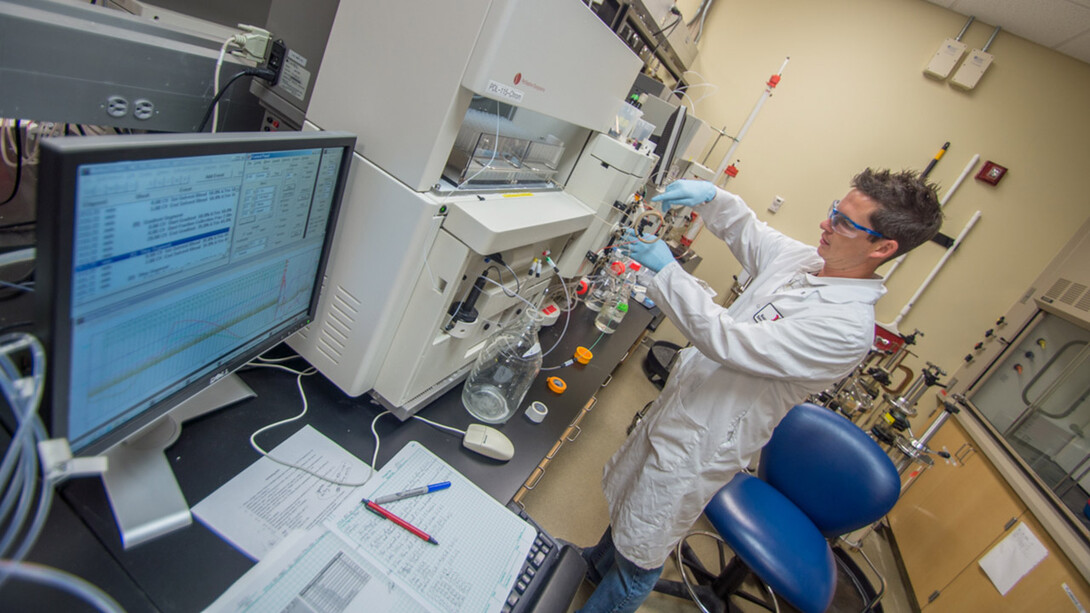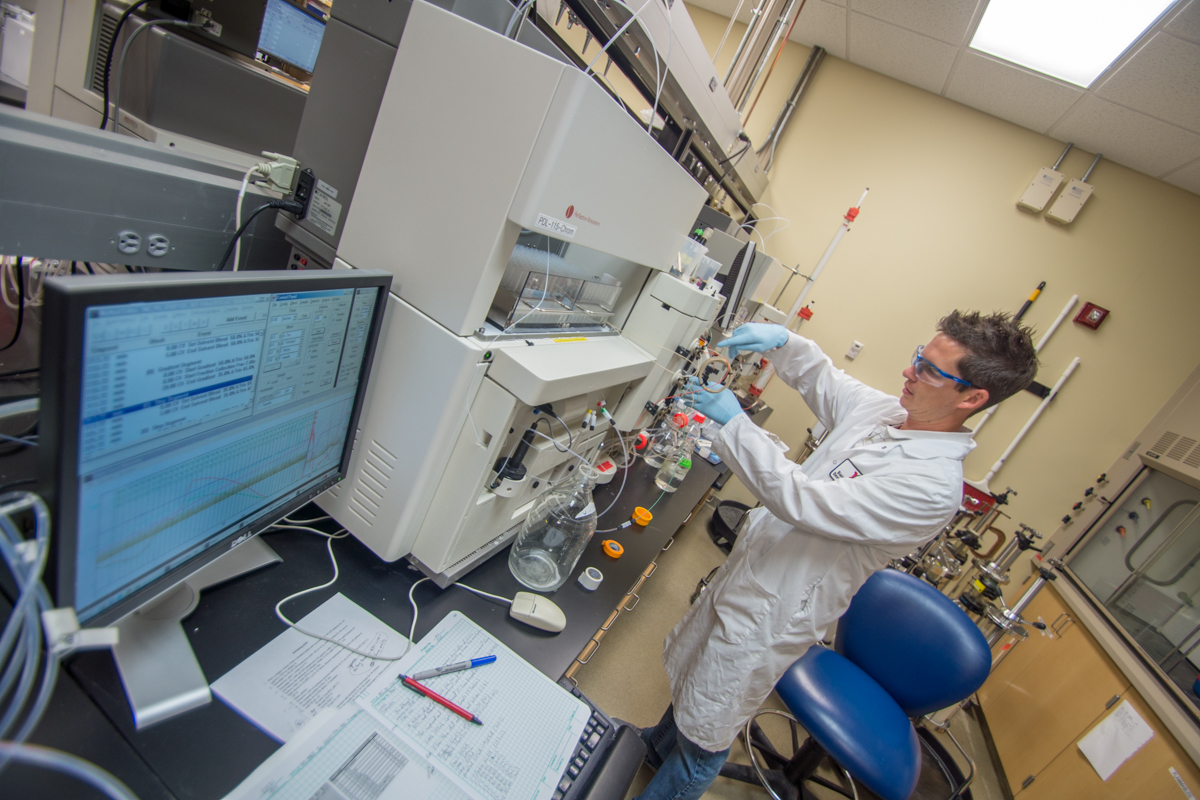
The College of Engineering’s Biological Process Development Facility is working with an emerging biotechnology company on a vaccine that could treat patients who have the novel coronavirus and help prevent similar outbreaks in the future.
The vaccine being developed by Vault Pharma, headquartered at the California NanoSystems Institute’s Magnify incubator at the University of California, Los Angeles, could be a complementary weapon to any initial vaccine for COVID-19 treatment.

Vault Pharma creates genetically modified versions of vaults — naturally occurring nanoparticles found in every human cell — as a delivery device for potential therapies or vaccines. The barrel-shaped vaults include a shell of 78 copies of a particular protein, housing two additional proteins and some genetic material.
A vault-based strategy could be well-suited to fight the novel coronavirus by preventing infection and activating the humoral immune system, which uses antibodies to neutralize foreign microbes in bodily fluids and tag them for elimination by immune cells.
“The nature of these nanoparticles suggests they could be readily internalized by multiple immune cells to respond to the novel coronavirus,” said Scott Johnson, production manager for the Biological Process Development Facility. “The BPDF would transfer in the production process, potentially optimize specific steps to increase purity and yield, and scale up the process to produce material for clinical testing.”
The Nebraska-based research facility has plenty of experience and expertise in these areas, including collaborating in 2015 with the U.S. Army Medical Research Institute of Infectious Diseases to produce material for clinical trials on a ricin vaccine.
The facility is also working with another company to produce a recombinant protein as a biotherapeutic to provide compassionate care for COVID-19 patients who may have few options left for treatment. Clinical trials for this treatment are being fast-tracked for a possible July start.
“One of the thoughts behind establishing the BPDF was that it could serve as a resource to expedite the production of biopharmaceutical products in response to national emergencies, such as a pandemic or bioterrorism,” said Cory Smathers, BPDF business operations manager.
“Since this pandemic affects everyone on a personal level, it is especially gratifying to participate in any project that could have a significant impact in its treatment or prevention.”








